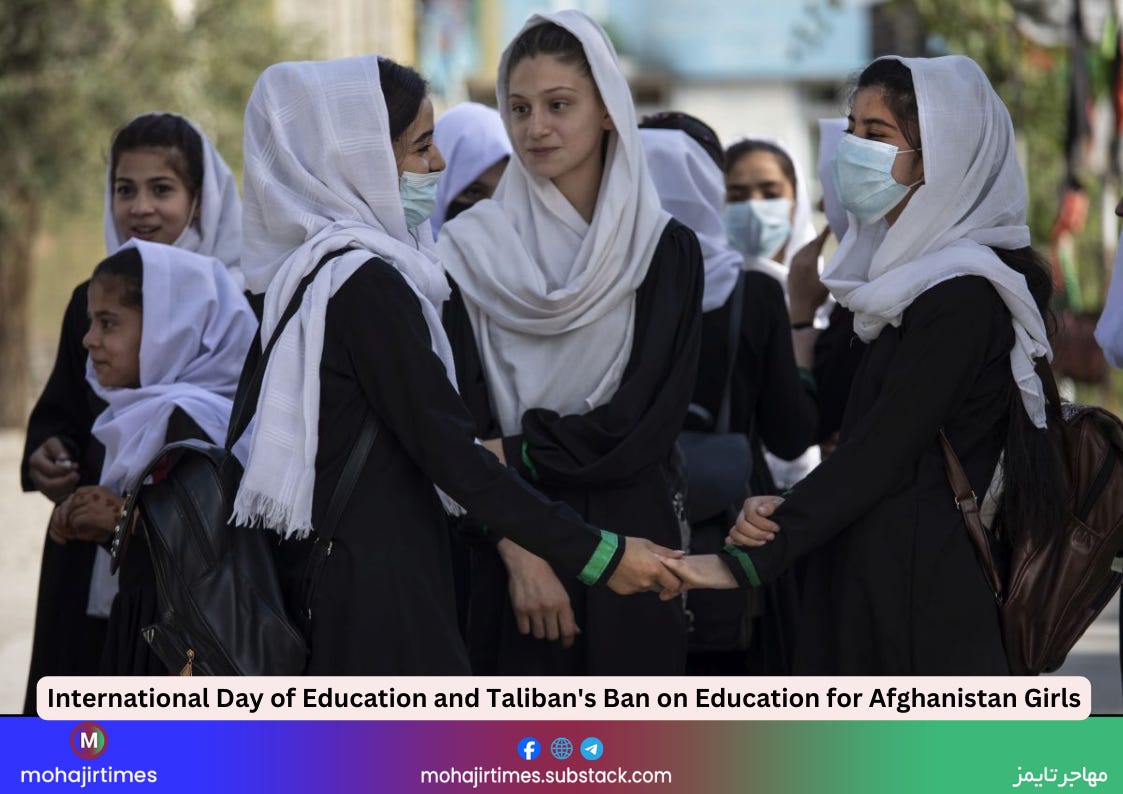International Day of Education and Taliban's Ban on Education for Afghanistan Girls
The Taliban's stance on education has profound implications for the socio-economic development of Afghanistan
January 24 marks the International Day of Education, dedicated to highlighting education's significance as a fundamental human right and a key driver of sustainable development. However, this day also sheds light on the challenges faced by individuals in certain regions, such as the Taliban's prohibition of education for Afghanistani girls. This analysis explores the implications of the Taliban's stance on education and its impact on the broader goals of international education.
International Day of Education
Adopted and recognized by the United Nations on December 3, 2018, the International Day of Education aims to recognize the role of education in achieving peace, promoting equality, and fostering development. It serves as a reminder of the global commitment to ensuring inclusive and quality education for all, as outlined in Sustainable Development Goal 4.
Denial of Basic Human Rights:
The Taliban's strict interpretation of Islamic law has led to the denial of education for Afghanistan girls. This denial represents a blatant violation of the fundamental human right to education. Education is not only a means of acquiring knowledge but also an empowering force that enables individuals to lead fulfilling lives and contribute to the betterment of society, economy, culture, and a mighty nation.
Undermining Gender Equality:
The prohibition on education for Afghan girls reinforces gender inequalities within the country. By restricting educational opportunities for half of the population, the Taliban perpetuates traditional gender roles and denies girls the chance to develop skills and knowledge that are essential for their personal and professional growth. This undermines efforts towards achieving gender equality and empowerment in a nation.
Stifling Socio-Economic Development:
The Taliban's stance on education has profound implications for the socio-economic development of Afghanistan. By limiting access to education, particularly for girls, the country is stifling the potential of a significant portion of its population. Education is a catalyst for economic growth, innovation, and the development of a skilled workforce, all essential for a nation's progress.
International Concerns and Responsibilities:
The international community has a responsibility to address this seriously and condemn the Taliban's prohibition on education for Afghanistani girls. Education is a universal right, and its denial should be met with collective concern and action. Diplomatic and humanitarian efforts must be mobilized to advocate for the rights of Afghan girls and women, promoting a more inclusive and equitable society.
In conclusion, as we celebrate the International Day of Education on January 24, it is essential to acknowledge the challenges faced by those who are denied this basic human right, particularly Afghanistani girls under the Taliban's rule. The global community must stand united in condemning the prohibition of education and work towards fostering an environment where education is accessible to all, irrespective of gender, ethnicity, class, or religion, ensuring a brighter and more equitable future for Afghanistan and beyond.





